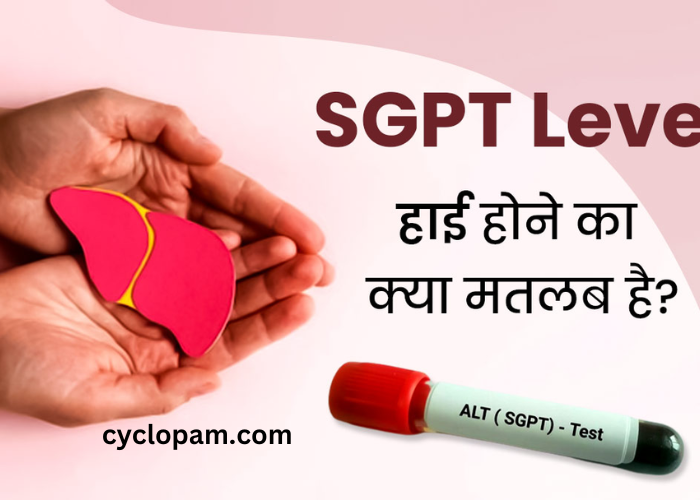The Serum Glutamic Pyruvic Transaminase (Sgpt) test, also known as the Alanine Aminotransferase (ALT) test, plays a pivotal role in assessing liver function. Conducted through a simple blood test, it measures the level of the SGPT enzyme in the bloodstream, which is crucial for diagnosing liver diseases.
For those seeking information in Hindi, this guide will offer a comprehensive overview of the Sgpt test, explaining its importance, procedure, and how to interpret the results effectively.
Key Points:
- The Sgpt test evaluates liver enzyme levels to diagnose liver conditions.
- It’s a routine test used to monitor liver health and detect liver diseases.
- Interpreting Sgpt levels accurately can lead to early detection and treatment of liver issues.
What is the Sgpt Test?
The Sgpt test is designed to measure the concentration of the SGPT enzyme in the blood. This enzyme is predominantly found in the liver and is involved in amino acid metabolism. Elevated levels of SGPT can indicate liver damage or inflammation, making it a key marker for diagnosing liver-related health issues.
Example: If a patient with hepatitis experiences elevated SGPT levels, it signifies that the liver is inflamed, and further diagnostic tests may be required to determine the extent of the damage.
Why is the Sgpt Test Important?
The significance of the Sgpt test lies in its ability to provide early indications of liver problems. The liver, being a vital organ, performs numerous functions crucial for overall health.
By detecting abnormal levels of SGPT, healthcare providers can identify liver conditions such as hepatitis, fatty liver disease, or cirrhosis before symptoms become severe. This early detection allows for prompt treatment and management, potentially preventing more serious complications.
Note: For individuals with pre-existing liver conditions or those at high risk, regular monitoring of SGPT levels is essential for managing their health effectively.
How is the Sgpt Test Performed?
The Sgpt test is conducted through a straightforward blood draw. A healthcare professional will take a sample of blood from a vein in your arm using a needle. The sample is then sent to a laboratory where it is analyzed to measure the SGPT enzyme levels. The test is quick and typically requires minimal preparation.
Interpreting Sgpt Test Results
SGPT levels are measured in units per liter of blood. The normal range for SGPT levels generally falls between 7 and 56 units/L. Elevated levels can indicate liver inflammation or damage, while levels below this range are usually considered normal.
Table 1: Normal vs. Elevated Sgpt Levels
| SGPT Level (units/L) | Interpretation |
| 7-56 | Normal |
| Above 56 | Elevated; potential liver issues |
If your SGPT levels are elevated, it is important to follow up with additional tests to pinpoint the underlying cause. Your healthcare provider will interpret these results in the context of your overall health and medical history.
Conditions Indicated by Elevated Sgpt Levels
Elevated SGPT levels can be indicative of various liver conditions. Some common issues associated with high SGPT levels include:
- Hepatitis: An inflammation of the liver caused by viral infections or other factors.
- Fatty Liver Disease: Accumulation of fat in the liver cells, often related to obesity or excessive alcohol consumption.
- Cirrhosis: Severe liver scarring resulting from long-term liver damage.
Reminder: Elevated SGPT levels alone are not sufficient for a diagnosis. They should be interpreted along with other tests and clinical assessments to determine the exact cause of the liver issues.
Comparing Sgpt and Sgot Tests
The Sgpt test is often compared with the SGOT (Serum Glutamic Oxaloacetic Transaminase) test, another enzyme test used to evaluate liver function. Both tests measure different enzymes that help assess liver health but can provide different insights.
Table 2: Sgpt vs. Sgot
| Feature | Sgpt (ALT) | Sgot (AST) |
| Location | Primarily in the liver | Found in liver, heart, muscles |
| Normal Range | 7-56 units/L | 5-40 units/L |
| Indication | Liver damage | Liver and other organ damage |
The SGOT test also measures enzymes present in other organs, so elevated levels can indicate issues beyond the liver.
What to Do if Your Sgpt Levels Are High?
If your SGPT levels are higher than the normal range, it’s crucial to consult your healthcare provider for further evaluation. They may recommend additional tests such as imaging studies or a liver biopsy to understand the extent of liver damage. Based on the findings, your doctor will suggest appropriate treatment options or lifestyle changes to manage the condition effectively.
Note: Lifestyle factors, such as diet and alcohol consumption, can influence SGPT levels. A holistic approach involving dietary adjustments and healthy living is often necessary for effective management.
Conclusion
Understanding the Sgpt test and its implications is essential for maintaining liver health and addressing potential liver issues early. By grasping the significance of SGPT levels and their interpretation, individuals can take proactive steps toward their health.
If you have concerns or abnormal results, seeking professional medical advice is crucial for proper diagnosis and treatment.
FAQ’s
- What does a high Sgpt level indicate?
A high SGPT level suggests liver inflammation or damage, but further diagnostic tests are necessary to pinpoint the exact cause.
- How often should I get an Sgpt test?
The frequency depends on individual health conditions and risk factors. Consult with your healthcare provider for personalized recommendations.
- Can medications affect Sgpt levels?
Yes, some medications can alter SGPT levels. Always inform your doctor about any medications you are taking.
- Are there any symptoms associated with high Sgpt levels?
High SGPT levels themselves don’t cause symptoms, but they may indicate underlying liver issues that could manifest as symptoms like jaundice or abdominal discomfort.
- What lifestyle changes can help lower Sgpt levels?
Adopting a balanced diet, reducing alcohol intake, and engaging in regular physical activity can help manage and potentially lower elevated SGPT levels.
